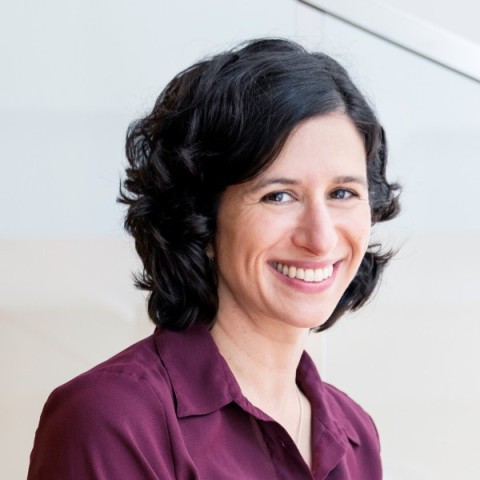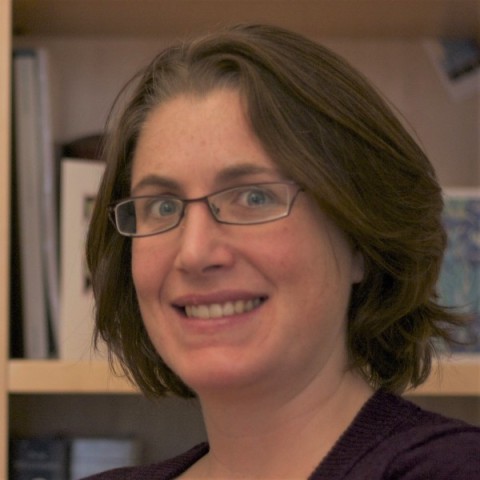Nearly 125 million Americans live with some form of chronic inflammatory disease, and when the inflammation that accompanies the human body’s immune response malfunctions, the result can be harmful, painful or even deadly. Unfortunately, many promising research areas fall through the cracks of traditional funding.
To combat this, the Chan Zuckerberg Biohub Chicago’s Investigator Program funds “high-risk, high-reward research ideas” linked to inflammation and the functions of the immune system, as well as research related to instrumented tissues. The Chicago nonprofit studies inflammation as part of the national Chan Zuckerberg Biohub Network’s goal of “Empowering scientists to pursue their riskiest, most exciting ideas.”
Six teams led or co-led by UChicago Pritzker School of Molecular Engineering (PME) researchers will take a total $4.8 million in awards to fund innovative, bold and early-stage projects to help combat these pressing health issues.
To be eligible for the award, the research must tackle inflammation and immune response from a direction not currently funded by foundations, government agencies or other traditional sources.
Aaron Esser-Kahn, Peter Maurer, Alex Pearson – Quantum enabled identifiers

An interdisciplinary team led by PME immunoengineering Prof. Aaron Esser-Kahn, PME quantum researcher Asst. Prof. Peter Maurer and UChicago Professor of Medicine Alexander T. Pearson will receive $900,000 over three years to develop quantum-enabled identifiers (Q-IDs) that will allow for the investigation of individual immune cells in real-time.
“It’s a project that would not yet be funded by a larger agency but has the potential to revolutionize the way we study and monitor biological phenomena,” Esser-Kahn said.

“Our approach relies on nanodiamonds containing nitrogen-vacancy (NV) centers as photostable fluorophores, which are arranged in unique bar codes using DNA origami,” Maurer said. “Eventually these Q-IDs will be able to monitor thousands of immune cells, which will provide insights into inflammation in tumors and tissues and potentially lead to new therapies for chronic inflammation and cancer.”
“The Biohub has created a unique opportunity to team researchers from diverse scientific backgrounds and develop creative approaches for high-impact, cutting-edge challenges,” Pearson said.
Samantha Riesenfeld and Allison Squires – Biomarker detection

PME Assistant Professor of Molecular Engineering and Medicine Samantha Riesenfeld and Neubauer Family Assistant Professor of Molecular Engineering Allison Squires are receiving $900,000 over three years to build an interdisciplinary platform that integrates new multiplexing technologies from the Squires Lab with the Riesenfeld Lab’s computational modeling capabilities.
"We're working to push the boundaries of both what we can measure from a minimum amount of sample input, and what we can learn about inflammatory processes from these new data streams,” Riesenfeld said.
The research is aimed at new ways of detecting and understanding inflammatory biomarkers. The team will initially target a type of gut immune cell called intestinal intraepithelial lymphocytes, which if activated can lead to inflammation and tissue destruction in Celiac disease and inflammatory bowel disease and promote some forms of cancer.

"CZ Biohub Chicago's mission is to support ambitious, high-impact projects that might be too risky for traditional funding mechanisms,” Squires said. “But beyond funding, the Biohub is bringing together bioengineers from across the region and challenging them to coordinate their efforts to develop entirely new, integrated systems for both biomedical applications and fundamental discovery that are bigger and different from what traditional teams of collaborators could accomplish."
Sihong Wang – 3D bioelectronics

PME Asst. Prof Sihong Wang will receive $600,000 over three years to develop a new type of 3D bioelectronics technology that can be used to record and modulate inflammation activities.
“The success of this project will provide a new type of tools for the study of real-time and longitudinal study of biological processes in live tissue models and animal models,” Wang said. “Unprecedentedly, the tool will be able to interface with tissue models in a 3D-embedded manner, which can achieve the recording and modulation functions with spatial heterogeneity and high density. Such capabilities can enable the acquisition of a much deeper understanding of biological processes such as inflammation.”
Savas Tay and Marcus Clark – B-cell development

PME Prof. Savas Tay, who is also a member of UChicago’s Institute for Genomics and Systems Biology, and UChicago Medicine Prof. Marcus R. Clark will receive $900,000 over three years to develop a new technology that measures biological molecules like proteins and mRNA from tissues in a three-dimensionally resolved manner. They will use this to understand the development of B-cells, a type of white blood cell that makes antibodies.
“We can better characterize immune tissues with this technology, which will lead to a better understanding of dynamics events during immune response as well as developing computational models of these events,” Tay said.
Margaret Gardel and Vincenzo Vitelli - Characterizing inflammatory response

Horace B. Horton Professor of Physics, Molecular Genetics and Cell Biology and PME Margaret Gardel and Professor of Physics Vincenzo Vitelli will receive $900,000 over three years to explore new approaches to characterize inflammatory response at the cell and tissue scale. Both are members of the James Franck Institute and Center for Living Systems.
“The flexibility of the award provides the freedom for us to develop techniques and ideas, a kind of risk not offered with traditional funding approaches,” Gardel said. “Moreover, the CZ Biohub Investigator program is an exceptional opportunity for building the biomedical and bioengineering community across Chicagoland that will impact our research and training.”
William B. Ogden Prof. Melody A. Swartz, who holds a joint appointment with the Ben May Department for Cancer Research, also will receive $600,000 over three years for immunology research.

